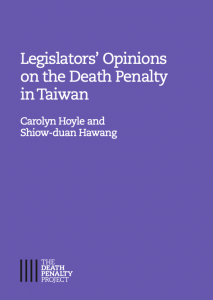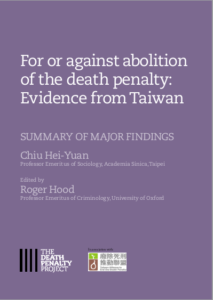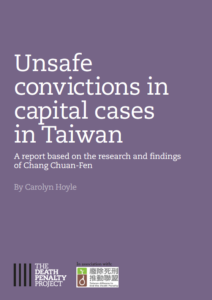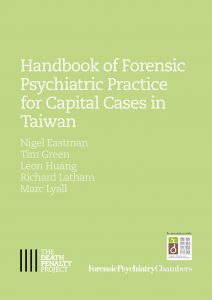Legislators' Opinions on the Death Penalty
- Reports and Studies
- 24 Feb 2022
In 2021, The Death Penalty Project and the Taiwan Alliance to End the Death Penalty (TAEDP) commissioned Professor Carolyn Hoyle at the University of Oxford and Professor Shiow-duan Hawang at Soochow University, Taipei to carry out a study exploring Taiwanese legislators’ attitudes towards capital punishment.
The study reveals that the majority of Taiwan’s legislators would like to see the death penalty abolished. The risk of wrongful convictions, the abuse of human rights and a recognition that the death penalty has no unique deterrent effect, were the primary reasons cited for supporting abolition. Additionally, a majority of legislators interviewed expressed fairly low levels of trust in the Taiwanese criminal justice system, with doubts raised over its ability to offer adequate safeguards to individuals facing capital trials.
Key findings:
- 61% of legislators interviewed are in favour of abolishing the death penalty
- 39% of legislators interviewed are in favour of retaining the death penalty, but only one legislator was strongly in favour
- 71% of retentionists and 65% of abolitionists asserted that wrongful convictions ‘sometimes’ occurred
- Only 11% of legislators interviewed thought that wrongful convictions ‘rarely’ occur
- All legislators interviewed expressed a preference for social justice measures, such as poverty reduction, over increased executions when asked to rank a range of policies aimed at reducing violent crime
When presented with the findings from our previous public opinion research, that showed the public had limited knowledge of the death penalty and were far more open to abolition than previously thought , legislators were asked again for their views on abolition and their support for abolition increased by 20%.
- Support for abolition rose from 61% to 81%, with 21% strongly in favour
- Support for retention fell from 39% to 19%, with no one expressing strong support





